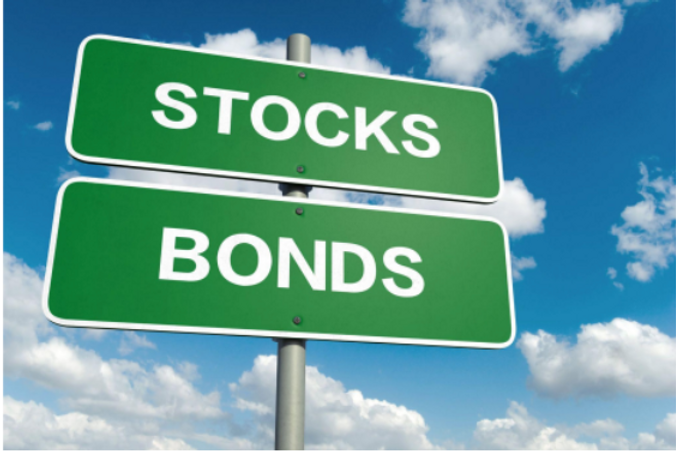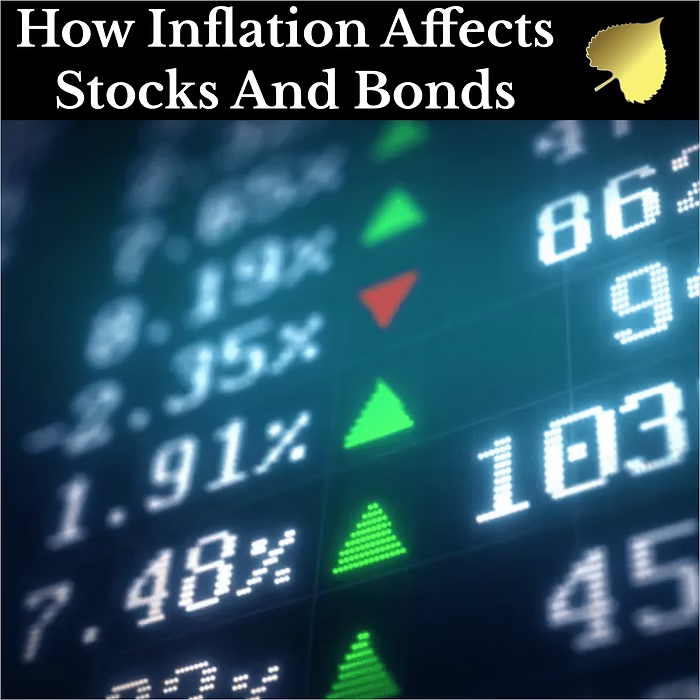Due to pent up demand from the pandemic, inflation is quickly creeping up on the average consumer. Inflation is the increase of prices for goods and services, which in-hand decreases the value of the dollar.
When prices go up, consumers can purchase fewer goods resulting in the economy slowing down during the inflationary period. With this in mind, you may be wondering or even concerned about how inflation can have an effect on your investment portfolio.
Rising interest rates and rising prices surely don't contribute to an easy investing environment. Nevertheless, there are different investment vehicles that have historically proven to be viable hedges against inflationary pressures. Below we’ll go over how inflation affects stocks and bonds.
Does Inflation Increase Stock Prices? | Investing In Stocks
While stocks are generally seen as a viable hedge against inflation, that doesn’t mean that inflation is a good thing for stocks. Rising inflation generally leads to higher input prices for companies, and that increase is passed along to consumers in the form of higher prices. During inflationary times, consumers feel an unexpected “pinch” when goods and services cost more, which can lead to a lower level of consumption.
Since inflation leads to higher prices, that begs the question: Does inflation lead to higher stock prices too? Not necessarily. Higher inflation can squeeze corporate profits due to higher input costs and lower consumption. Because stocks are valued based on their earnings, this can actually lead to a decrease in stock prices.
However, the effect that inflation has on a company varies from sector to sector. For example, growth stocks underperform when inflation is higher, because growth stocks have most of their earnings expectations in the future. These companies are focused on investing in the future development of the company. As inflation picks up, profits in the future are discounted more, making these earnings worth relatively less today.
On the other hand, value stocks tend to do better than growth stocks in rising inflationary environments because the profits from the company activity are realized sooner than that of growth companies. Value stocks are typically associated with sectors such as financials and energy, which have historically outperformed during times of rising interest rates and inflation.

Is Inflation Good For Bonds? | Do Bond Prices Go Up With Inflation?
A bond is a fixed income security that allows governments and companies to sell some of their debt. Investors purchase the bond and expect to receive the return of their principal at some future date, plus interest paid by the bond issuer at the terms stated in the bond contract.
Inflationary environments can have two different negative effects on bonds.
First, during a period of inflation, the Fed may choose to raise short-term interest rates in order to reduce demand for credit and help prevent the economy from overheating. When short-term interest rates rise, or are expected to do so in the future, intermediate and long-term interest rates also rise. Bond prices have an inverse relationship to the movement of interest rates. So, when interest rates rise, the market price of your bonds fall.
The second impact of inflation is subtle in nature but can have a meaningful impact on your portfolio’s performance. This impact is the difference between nominal return and real return. The nominal return is the return a bond or bond fund returns on paper, while the real return makes an adjustment for inflation. For example, if your current bond portfolio returns 3.2%, but inflation is 6%, your nominal return is 3.2%, but your real return is actually negative because the inflation rate outpaced your portfolio’s return.

In some circumstances, an investor is willing to trade a negative real return in exchange for safety. If safety is not what you desire, be mindful of inflation’s potential impact on your real returns.
After all that information you may be wondering if stocks are better than bonds in periods of inflation. Historically, the answer is yes, stocks are generally a better inflation hedge than bonds.
The long answer, however, is inflation digs into the purchasing power of every dollar received from bond interest in the future. Since those interest payments are less valuable as inflation rises, your bond is less valuable. The price of the bond drops when interest rates rise.
In summary, there is no perfect way to hedge a portfolio against inflation. While there are some stocks and bonds that hold up better in periods of inflation, the most important thing an investor can do is maintain a well-diversified portfolio and, if applicable, consult their financial advisor on best strategies to maximize real returns in inflationary periods.


.png)
.png)

